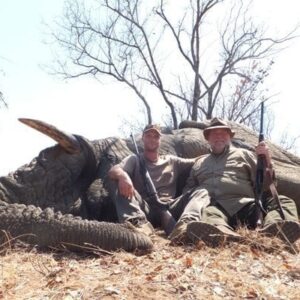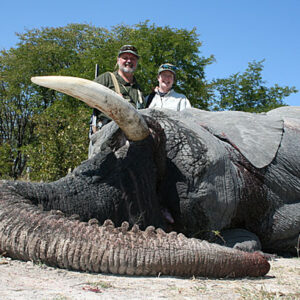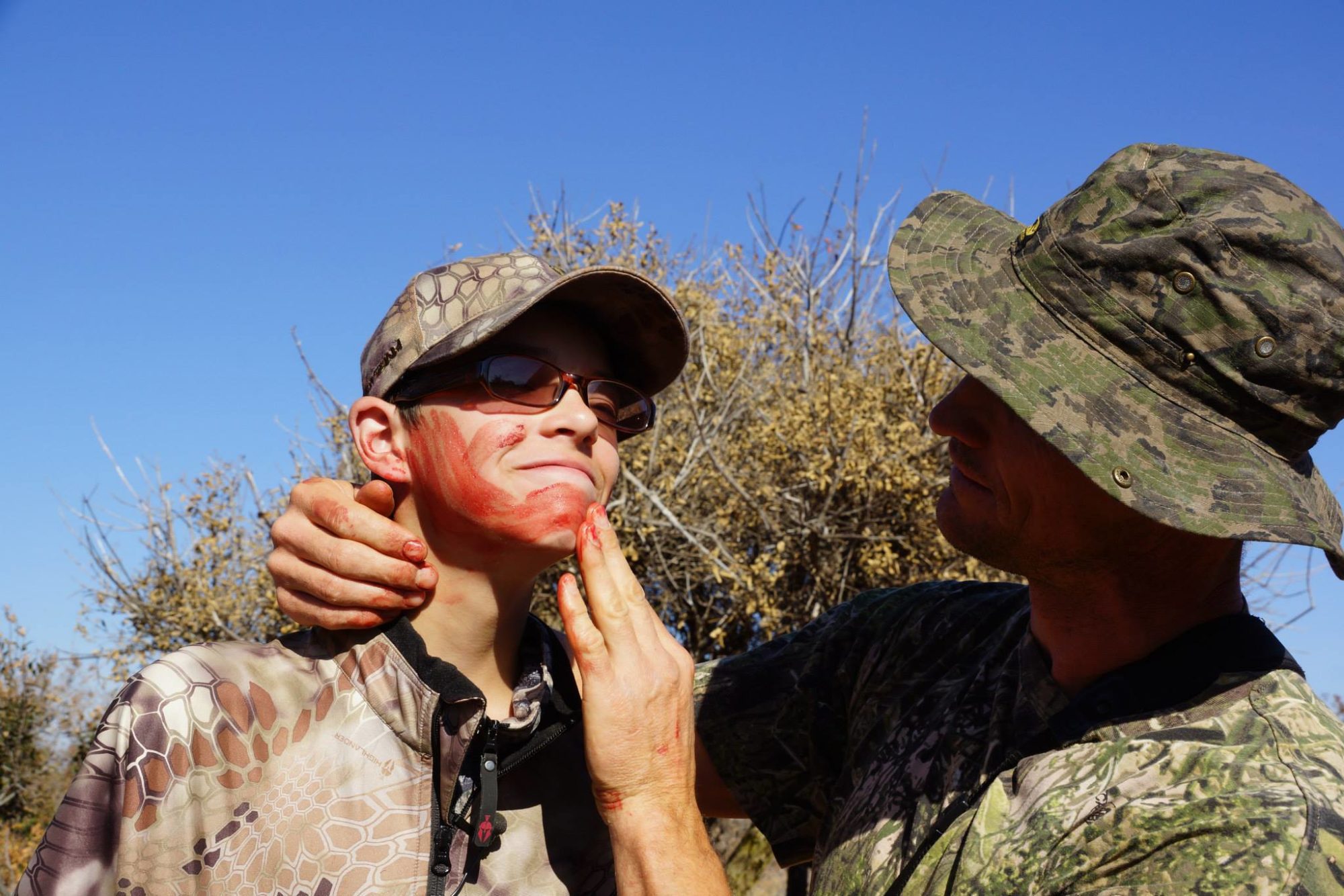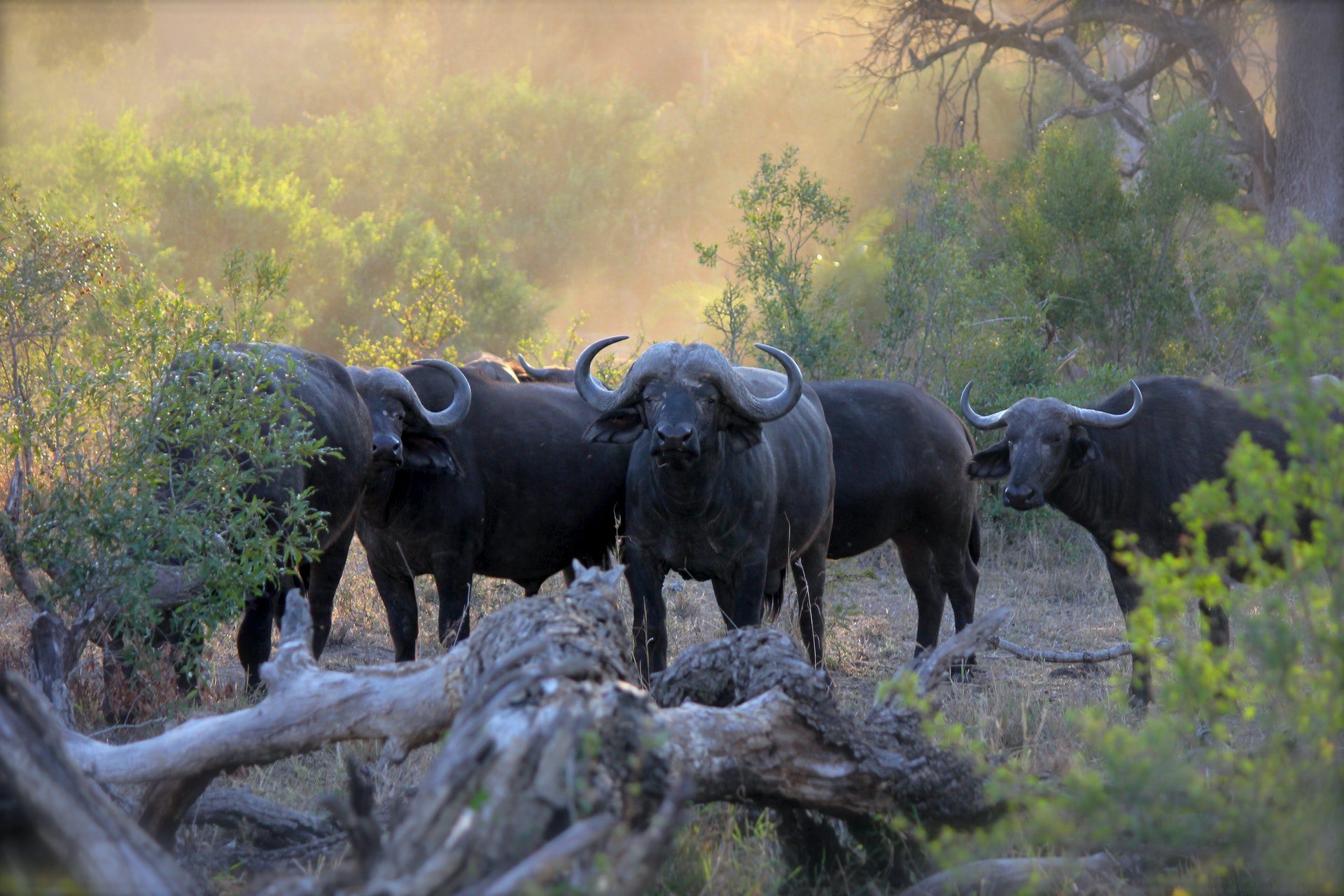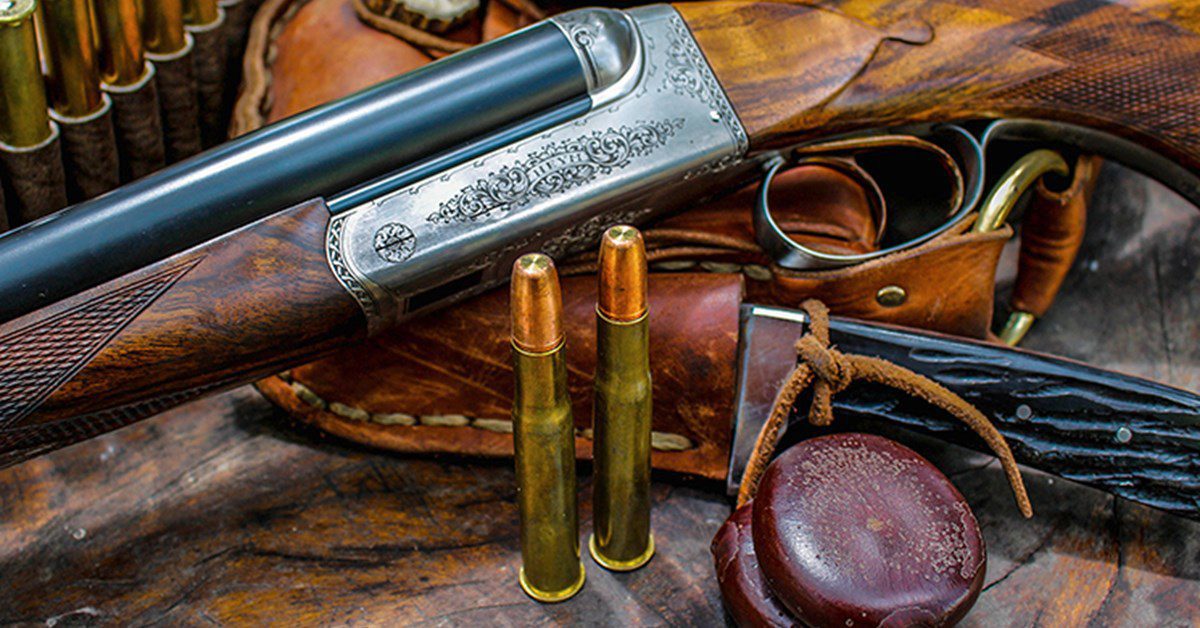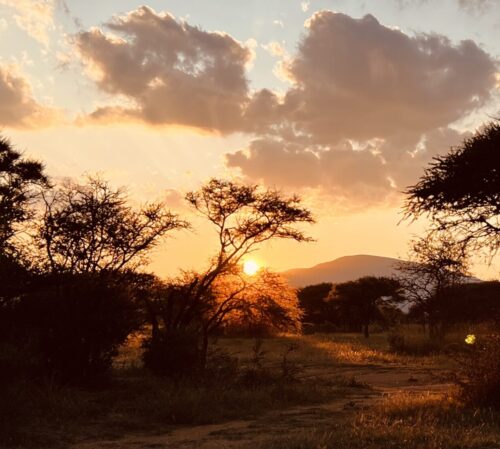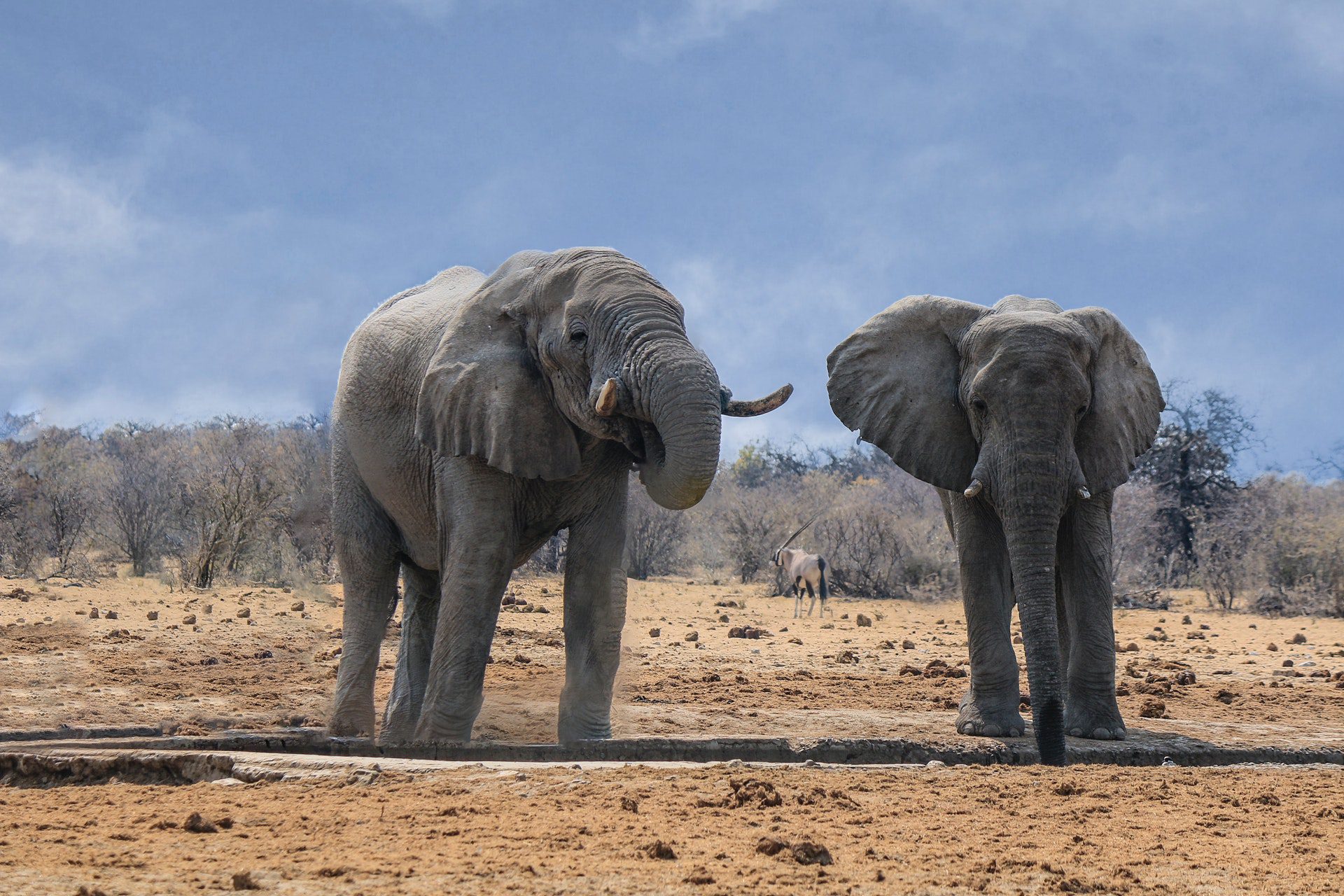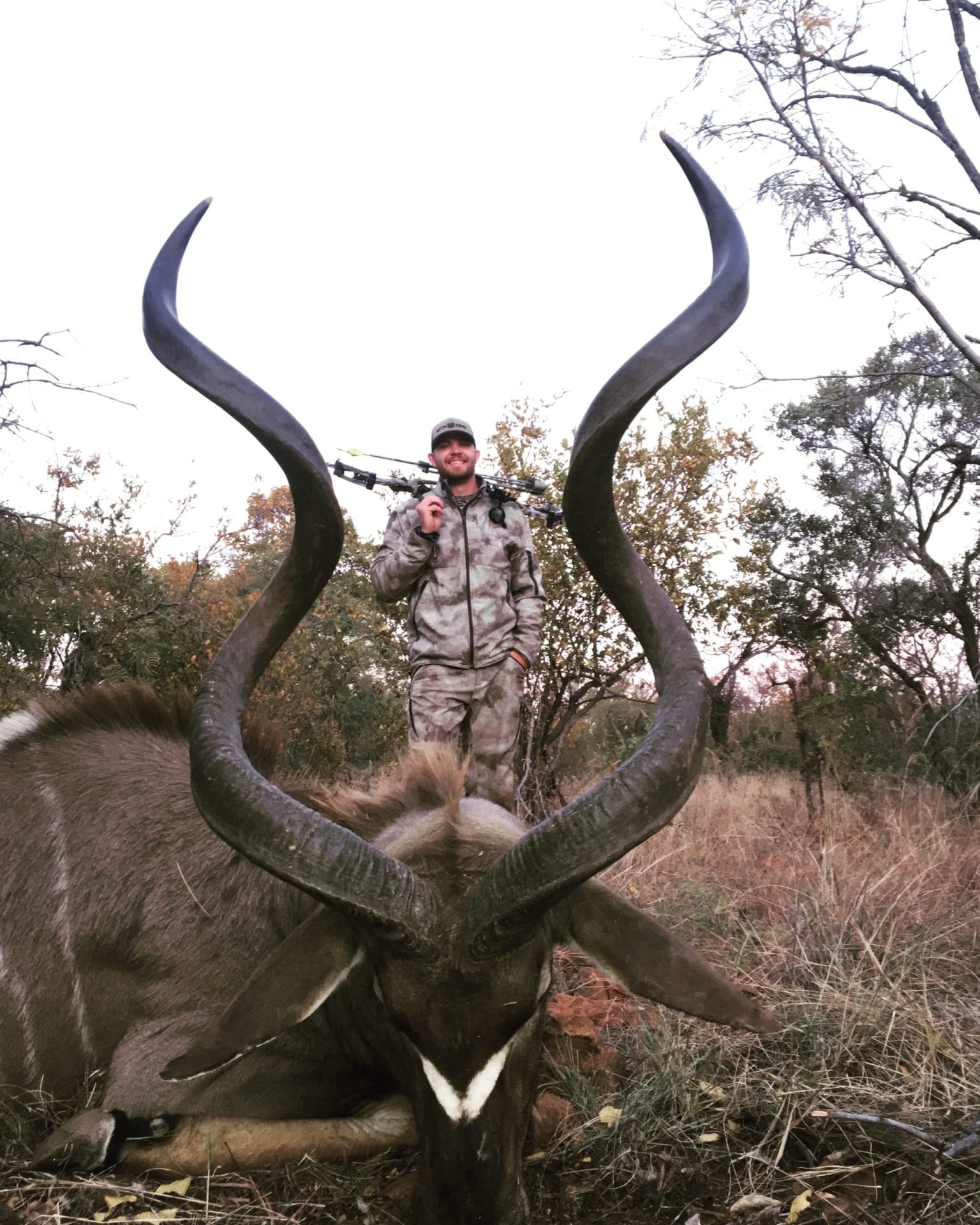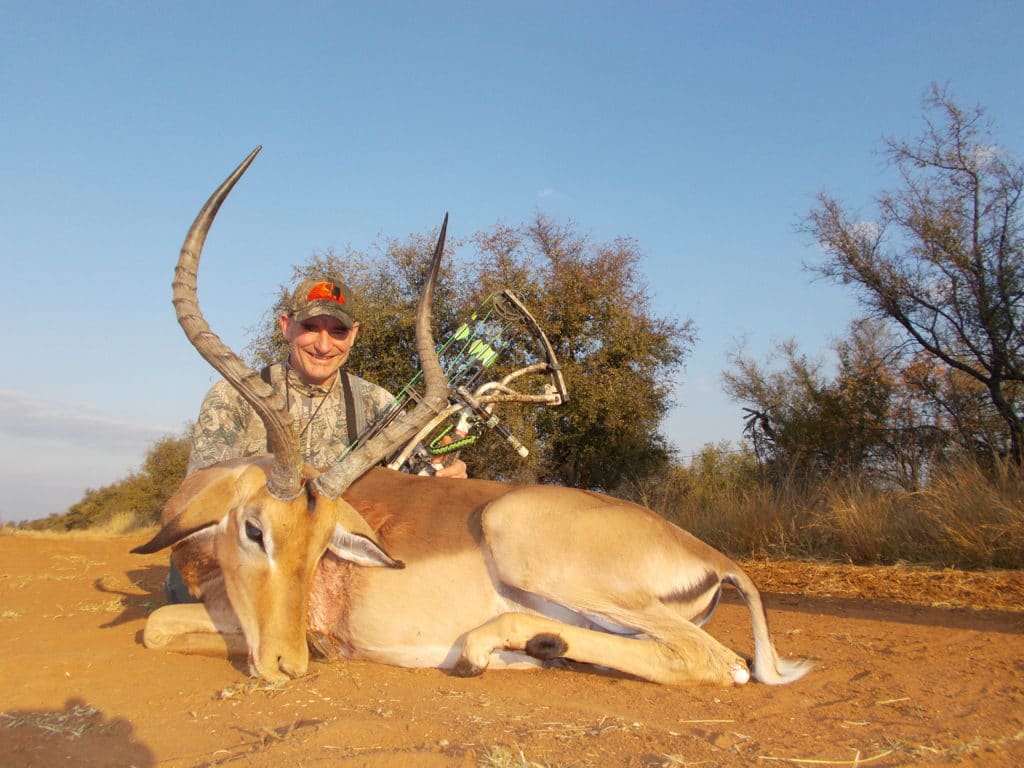Contrary to popular belief, elephant hunting is NOT easy. You might walk great distances behind expert trackers, for days on end, to secure a good tusker. Locals show up from miles around to battle over every scrap of meat once an elephant is killed. Protein is scarce in Africa.
There are two species of elephant on the African continent.
- The common or savannah elephant (Loxodonta africana africana)
- The forest elephant (Loxodonta africana cyclotis). Forest elephant are found in the forest regions of central- and North Africa.
Scientific sources state that the forest elephant is smaller than the savannah elephant, but comparative figures are not supplied. Apart from body size forest elephant have more rounded ears than the savannah elephant.
Elephant Hunting
The peril of embarking on a Cape buffalo hunt often ignites more exuberance among hunters than any of the other members comprising the Big 5. It is an undeniable truth that pursuing elephants induces a surge of adrenaline, pushing your sweat glands into overdrive.
The typical mass of male elephants oscillates between 12,100 pounds and 13,200 pounds (5,500 kilograms and 6,000 kilograms), while female elephants weigh in at roughly two-thirds the weight of their male counterparts.
The act of tracking an elephant amidst the dense foliage of Mopane brush (Colophospermum mopane) is frequently accompanied by the suspense of momentarily losing sight of this colossal creature. It is not uncommon for a tracker to ascend the nearest lofty tree in an attempt to spot the surprisingly elusive beast.
Engaging in elephant hunting in Africa's natural habitat presents an unparalleled challenge. Despite their vocal and cacophonous nature while breaking branches during feeding, elephants intermittently halt their gastronomic pursuits, allowing their senses to engage in vigilant listening and scent detection, primed for any lurking danger.
Elephant hunting ventures into the realm of extreme peril.
These awe-inspiring creatures exhibit remarkable fearlessness and vocal prowess when faced with a challenge. Exercise utmost caution and refrain from making sudden movements when confronted by an agitated bull elephant, for as soon as he gathers sufficient confidence, he will charge forth. Elephant hunting is the epitome of dangerous game hunting.
Shot Placement for Elephants
Irrespective of the countless armchair viewing sessions you may have indulged in, regardless of the numerous hunting videos showcasing the pitfalls and misfortunes, I implore you to exercise caution. No matter how proficient you may consider yourself as an armchair adorned specialist in targeting an elephant's cranium, refrain from attempting a brain shot unless specifically advised to do so by your professional hunter (PH).
Broadside Shot
When confronted with an elephant positioned broadside, you have two potential targets:
- Aiming for the heart requires aligning your shot with the front leg, targeting a location between a quarter and one-third of the distance from the bottom of the brisket to the pinnacle of the back.
- Opting for a lung shot, undoubtedly the safer choice. If you have culled more than 100 elephants, you ought to be acquainted with the precise anatomical placement of an elephant's brain and heart. We wholeheartedly endorse a lung shot if your intent involves hunting fewer than 10 elephants throughout your lifetime. Between targeting the heart and the lungs, prioritize the latter, as the size of the lungs surpasses that of the heart significantly.
Considering the close proximity you are likely to maintain in relation to the elephant before taking your shot, adrenaline shall course through your veins. In such a scenario, prioritize the safer shot alternative.
Frontal Shot
Exclusively attempt a brain shot if you possess ample experience as an elephant hunter. Brain shots entail a degree of risk due to the changing angle of the shot. The angle to the brain fluctuates in correspondence with the distance between the rifle muzzle and the cranial target. The sheer magnitude of the cranium, along with its honeycomb-like structure, can lead to misinterpretations regarding the precise location of the brain.
The Fleeing Target
Should the elephant commence fleeing subsequent to your initial shot, aim for the spinal region nestled between the buttocks, in close proximity to the animal's rear.
Quartering Sway Shot
We emphatically recommend exercising patience, awaiting an opportune broadside shot. Penetration holds paramount importance in this regard.
Quartering Towards
Rather than hastily seizing an opportunity during a quartering towards position, exercise prudence and await the ideal moment when the animal presents a broadside orientation.
Book Your Hunt Today!
Live Like You Mean It
Contact Us
We've helped thousands of OI clients plan their adventures
Our team of professional consultants are ready to help you research, book and plan an amazing trip with one of our amazing outfitter partners around the world.
I didn't think an experience like this was possible.
This trip, was, for me at least not just a trip, for me it was a real adventure, a real experience. I love the wilderness and this trip afforded me the opportunity to connect with the Alaskan wilderness in ways very few people do. It was an experience I will never forgot in a place I can’t wait to get back to.Oliver Fischer
The outfitter handled everything perfectly.
We were thankful that Outdoors International hooked us up with a great outfitter because they were able to find us an acceptable alternate on short notice. Overall the two year process to get this float in was seamless and worry free. Just like it should be.Thank you, Stan Masneri
What an amazing experience!
The lodge was out of this world! Our rooms, the delicious food, the incredible wildlife and the scenery were amazing. Our photo safari guide was truly exceptional and had us on animals almost constantly. We saw over 30 different species and had some incredible up close experiences. Africa is amazing!Scott Navares
Copyright 2005-2025 © Outdoors International™ · All Rights Reserved.


